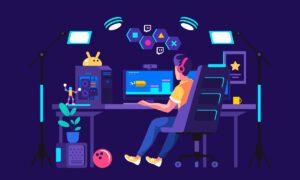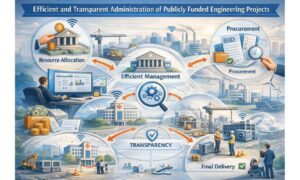Analyzing Your Performance with AI
Artificial intelligence has transformed the way candidates prepare for interviews by offering detailed analysis of performance. Through advanced algorithms, AI can identify patterns in speech, tone, and pacing, providing insights that might go unnoticed during a traditional practice session. This objective evaluation helps candidates understand their strengths and weaknesses more nuancedly. The immediate feedback allows for targeted improvements, making the preparation process more efficient and effective.
Candidates can also receive specific metrics related to key performance indicators. AI tools can assess clarity of thought, coherence of answers, and overall confidence levels, equipping users with the knowledge to refine their responses. By simulating real interview environments, these tools provide a safe space to practice, leading to significant enhancements in performance. Embracing AI in this manner creates opportunities for growth and prepares candidates for the dynamic nature of interviews.
Utilizing Feedback to Enhance Skills
Feedback from AI mock interviews is an invaluable resource for job seekers looking to improve their performance. By analyzing responses and style, AI systems can pinpoint strengths and weaknesses in answers. Constructive insights can highlight areas for improvement, including clarity of thought, relevance of experience, and the ability to articulate ideas effectively. Regular review of this feedback helps refine responses and builds a stronger foundation in communicating key qualifications.
Incorporating this feedback into practice sessions allows candidates to target specific skills for enhancement. Tailoring responses based on the critiques fosters a sense of actionable growth. This iterative process creates opportunities to refine communication techniques and boosts overall confidence through repeated exposure to potential interview scenarios. As candidates become more adept at addressing their weaknesses, they can transition from anxiety to assurance in their upcoming interviews.
Overcoming Common Interview Anxiety
Interview anxiety can manifest in various forms, impacting performance and overall confidence during the process. Many candidates experience racing thoughts, physical symptoms like sweating, or an overwhelming sense of dread. Understanding these feelings is the first step toward managing them effectively. Techniques such as deep breathing and visualization can help create a more relaxed state of mind before stepping into the interview room.
Preparation plays a crucial role in overcoming anxiety. Engaging in mock interviews allows candidates to familiarize themselves with potential questions and develop strategies for responses. Regular practice with AI tools can provide an avenue to simulate real interview scenarios, reducing uncertainty. Building confidence through repeated exposure can make a significant difference, turning anxiety into a valuable source of motivation rather than a debilitating hurdle.
Techniques to Manage Stress and Nervousness
Managing stress and nervousness before an interview can greatly enhance your overall performance. One effective technique is visualization. By picturing yourself in the interview scenario, speaking confidently and receiving positive feedback, you create a mental environment that cultivates calmness and self-assurance. Practicing deep breathing exercises also helps to ground yourself. Taking long, deep breaths lowers heart rate and reduces anxiety, allowing for greater focus on the task at hand.
Incorporating physical activity into your routine can lead to significant improvements in your mood and energy levels. Engaging in exercise releases endorphins, which help combat stress. Additionally, preparing thoroughly through mock interviews can diminish uncertainty about the questions you might face. This preparation instills a sense of control and readiness, transforming nervous energy into positive anticipation for the interaction ahead.
Tailoring Mock Interviews for Specific Industries
Mock interviews can be customized to reflect the distinct requirements of different industries. Each field has its own set of expectations, core competencies, and preferred communication styles. For example, a tech-focused mock interview might emphasize problem-solving skills and technical expertise, whereas a role in marketing may prioritize creativity and strategic thinking. Understanding the nuances of your target industry allows you to craft scenarios that challenge you in relevant ways, providing a more authentic practice experience.
Incorporating industry-specific questions into mock interviews can better prepare candidates for real-life situations. Using AI tools, aspirants can simulate interviews with questions tailored to their desired roles. This approach not only aids in understanding the technical language and jargon but also helps candidates articulate their experiences in a manner that aligns with industry standards. As a result, candidates become more confident and effective communicators under various professional contexts.
Adjusting Your Approach Based on Career Goals
When preparing for interviews, it’s important to tailor your mock sessions to align with your specific career goals. Different industries often require distinct approaches, and understanding the nuances of each can significantly enhance your performance. For example, a tech position may emphasize problem-solving skills and technical knowledge, while roles in the creative sector might focus on portfolio presentation and innovative thinking. By adapting your practice sessions to reflect these industry-specific requirements, you increase your ability to resonate with potential employers.
Feedback from AI-driven mock interviews provides valuable insights that can help you refine your preparation. Review how your responses match the expectations of your desired field. This data can highlight areas for improvement and suggest strategies to strengthen your answers. Adjusting not only the content of your responses but also your delivery will make you more effective in communicating your fit for the position. Embracing this customized approach enables you to show prospective employers you understand their needs and are prepared to meet them.
The Role of Body Language in Interviews
Non-verbal communication plays a pivotal role in the impression candidates make during interviews. Body language encompasses posture, gestures, and facial expressions, all of which can convey confidence or uncertainty. A firm handshake, maintaining eye contact, and displaying an open posture can signal approachability and self-assuredness. Conversely, crossed arms, lack of eye contact, or fidgeting can suggest discomfort or a lack of preparation.
AI technology can be an invaluable tool for candidates seeking to enhance their non-verbal cues. Through recordings and analysis of mock interviews, candidates receive immediate feedback on their posture and gestures. This data provides insights into areas that require improvement. Practicing in front of an AI program helps candidates adjust their body language effectively before the real interview. With tailored guidance, individuals can develop a more confident and authentic demeanor that resonates well with interviewers.
How AI Can Help You Improve Non-Verbal Cues
Artificial intelligence tools can analyze various aspects of your non-verbal communication, helping you identify strengths and areas for improvement. These tools utilize advanced algorithms to assess body language, facial expressions, and even eye contact patterns. By processing recordings of your mock interviews, AI can provide detailed insights into how these elements impact the overall impression you create.
Feedback from AI systems can highlight subtle cues that may go unnoticed during self-assessment. For instance, you might discover tendencies to cross your arms or avoid eye contact when discussing certain topics. By reviewing this data, you can actively work on adjusting your posture and enhancing your delivery, ultimately leading to a more confident and engaging interview presence.
FAQS
What are AI mock interviews?
AI mock interviews are simulated interview sessions powered by artificial intelligence that help candidates practice their interviewing skills by providing a realistic environment and instant feedback.
How can AI analyze my interview performance?
AI can analyze your performance by evaluating your responses, tone, pace, and body language, allowing you to identify areas for improvement and enhance your overall interview technique.
Can I customize AI mock interviews for specific job roles?
Yes, many AI mock interview platforms allow you to tailor the questions and scenarios based on the specific industry or job role you are targeting, helping you prepare more effectively.
What techniques can I use to manage interview anxiety?
Techniques to manage interview anxiety include deep breathing exercises, visualization, positive affirmations, and practicing mock interviews to build confidence and familiarity.
How important is body language in an interview?
Body language is crucial in an interview as it conveys confidence and engagement. Effective non-verbal cues can positively influence the interviewer’s perception of you.





























